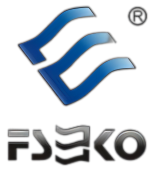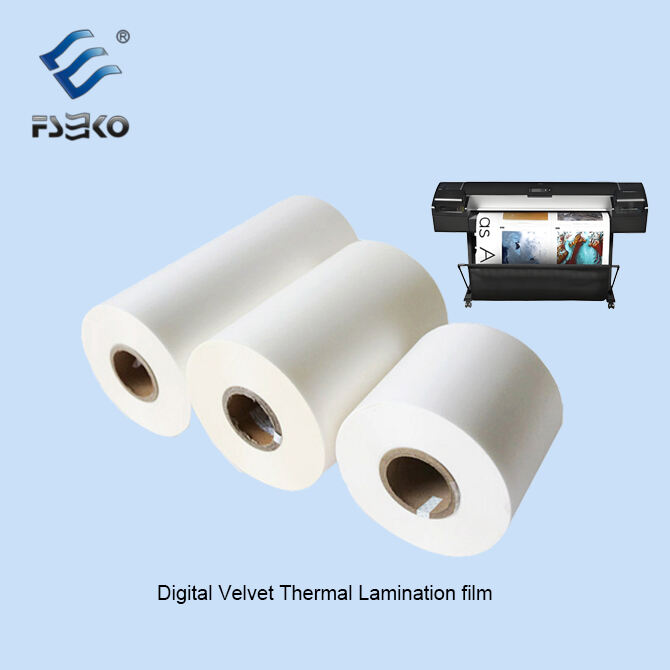في المجال الديناميكي للطباعة والتغليف، المواد التي تجمع بين الجذب الجمالي والتنوع الوظيفي تعيد تعريف معايير الصناعة. من بين هذه الابتكارات فيلم مخملي رقمي وقد برزت كغير للعبة، مغرورة المصممين، والمصنعين، والمستخدمين النهائيين على حد سواء. لكن ما الذي يدفع بالضبط إلى اعتمادها السريع في الأسواق العالمية؟ دعونا نستكشف العوامل التقنية والبيئية والإبداعية وراء ظهورها.
1. تطور تكنولوجيا التصفيف الرقمي
الفيلم الخمسي الرقمي ينتمي إلى الفئة الأوسع من أفلام التصفيف الحراري ، والتي تم تصميمها لتعزيز المواد المطبوعة من خلال الالتصاق الحراري. على عكس المصفوفات التقليدية ، تم تحسين المتغيرات الرقمية للتوافق مع عمليات الطباعة الرقمية عالية الدقة ، مما يضمن التكامل السلس مع سير العمل الحديث.
النسيج "المخفوق" - النهاية الناعمة المختلطة التي تذكرنا بالخيوط - يتم تحقيقها من خلال تقنيات طلاء متقدمة. هذه الطلاءات لا تزيد من تجربة اللمس فحسب، بل تحسن أيضاً من المدى الطويل، مما يجعل الفيلم مقاومًا للخدوش وبصمات الأصابع، وتلاشى الأشعة فوق البنفسجية. بالنسبة للصناعات مثل التعبئة والتغليف الفاخرة، وترتيب الكتب، ومواد الكتب الفاخرة، فإن هذا المزيج من الحماية والجاذبية الحسية لا يقدر بثمن.
- 2. تلبية متطلبات الاستدامة
في عصر تخفيض البلاستيك وهي أولوية عالمية، والفيلم الخميس الرقمي يبرز لابتكاراتها الواعي للبيئة. الشركات الرائدة مثل شركة "غوانغدونغ إيكو" لتصنيع الأفلام البدائل غير البلاستيكية والمواد المركبة القابلة لإعادة التدوير التي تحافظ على أدائها مع تقليل التأثير البيئي.
تشمل التطورات الرئيسية:
- صيغ خالية من البلاستيك : استبدال قواعد البوليمر التقليدية بمواد قابلة للتحلل أو التسميد.
- الإنتاج ذو الكفاءة الطاقوية : عمليات مبسطة تقلل من الهدر والانبعاثات الكربونية إلى الحد الأدنى.
- إعادة التدوير : أفلام مصممة للفصل بسهولة عن الركائز المطبوعة أثناء إعادة التدوير.
تتماشى هذه الميزات مع شهادات مثل FSC® (مجلس حماية الغابات) و REACH ، مما يضمن الامتثال للمعايير البيئية الدولية. بالنسبة للعلامات التجارية التي تسعى لجذب المستهلكين الواعين بالبيئة، فإن الفيلم الرقمي المخملي يقدم قصة مقنعة حول الاستدامة دون المساس بالجودة.
3. تعددية الاستخدام عبر الصناعات
وقد أدت قابلية التكيف بين الأفلام الرقمية المخملية إلى اعتمادها في مختلف القطاعات:
- تعبئة فاخرة : تستفيد العلامات التجارية الراقية من نسيجها المخملي لخلق تجربة فاخرة للاستعمال في مستحضرات التجميل والمجوهرات والإلكترونيات.
- النشر : تغطية الكتب والمجلات تستخدم الفيلم لتعزيز الوصول والتنقيط البصري، مما يميز نفسها في الأسواق التنافسية.
- التعبئة المرنة : النماذج المقاومة للماء والمقاومة للدموع تحمي السلع الفاسدة مع الحفاظ على جمالية العلامة التجارية.
- الطباعة الرقمية : تتوافق مع طابعات رذاذ الحبر والليزر مما يتيح تخصيص الطلب، مما يقلل من أوقات التنفيذ للطلبات الصغيرة.
يُبرز هذا التطبيق الشامل عبر القطاعات دور الفيلم كـ universal solution حلٍّ فعّال للتحديات الحديثة في التغليف.
4. التميز التقني والابتكار
يقع أساس نجاح الفيلم الرقمي المخملي في البحث والتطوير المستمرين. تستثمر شركات مثل EKO استثمارات كبيرة في:
- علم المواد : تطوير طلاءات توازن بين النعومة والمتانة.
- تحسين العمليات : ضمان الالتصاق المستمر عبر الأساسات ، من الورق إلى المواد الاصطناعية.
- التآزر بين المعدات : التعاون مع مصنعي الصحف الرقمية لتحسين التوافق وجودة الناتج.
على سبيل المثال، EKOs تقنية DTF (المباشرة إلى الفيلم) يدمج التشطيبات المخملية في الطباعة النسيجية، وتوسيع الإمكانيات الإبداعية للملابس والديكور المنزلي. هذه الابتكارات تسلط الضوء على إمكانات الفيلم في تعطيل نماذج التصنيع التقليدية.
خمسة. مستقبل الفيلم الرقمي
وبما أن الأسواق تطلب حلولاً أسرع وأكثر خضرة وتخصيصاً، فإن الفيلم المخملي الرقمي على استعداد لمزيد من النمو. تتضمن الاتجاهات المتوقعة:
- الطلاءات الذكية : الأفلام ذات أجهزة استشعار مضمنة أو ميزات مكافحة التزوير.
- إعادة تدوير أفضل : نماذج الاقتصاد الدائري حيث يتم إعادة استخدام الأفلام في منتجات جديدة.
- التوحيد العالمي : لوائح متوافقة لتبسيط التجارة عبر الحدود.
بالنسبة للشركات، فإن البقاء في المقدمة يعني الشراكة مع الموردين الذين يضعون الأولوية على الابتكار والاستدامة، وهي فلسفة تجسدها قادة الصناعة مثل إيكو.
الاستنتاج
شعبية الفيلم الخمسي الرقمي ليست مصادفة إنها تمثل التقارب بين التكنولوجيا المتطورة والمسؤولية البيئية والحرية الإبداعية. سواء كان ذلك لتعزيز تصور العلامة التجارية، أو حماية المنتجات، أو تقليل البصمة البيئية، فإن فوائدها تتردد عبر سلاسل القيمة.
مع تطور مشهد علوم المواد، شيء واحد واضح: الفيلم الخميس الرقمي ليس مجرد اتجاه ولكن حجر الزاوية من حلول التعبئة والتغليف والطباعة الجيل القادم. بالنسبة لأصحاب المصلحة الذين يهدفون إلى تأمين عملياتهم للمستقبل، فإن تبني هذا الابتكار أمر لا بد منه من الاستراتيجية والأخلاقية.
من خلال فهم الفروق الفنية، والشهادات الاستدامة، وإمكانات السوق، يمكن للشركات فتح فرص جديدة في المشهد التنافسي المتزايد. السؤال لم يعد لماذا فيلم مخملي رقميلكن متى هل يمكنك دمجها في سير عملك؟


